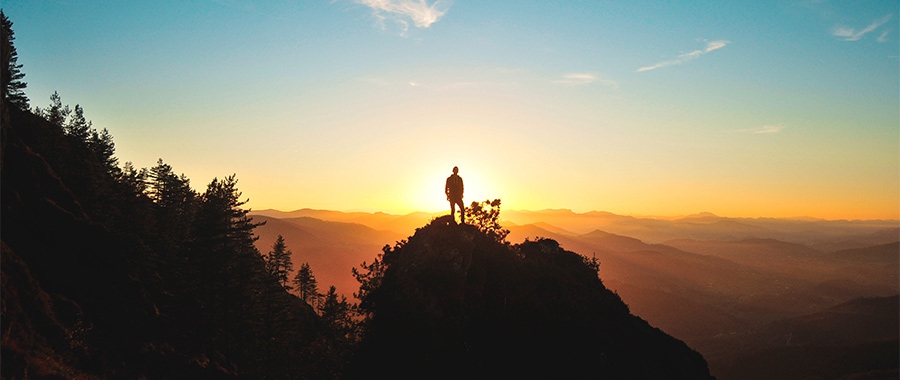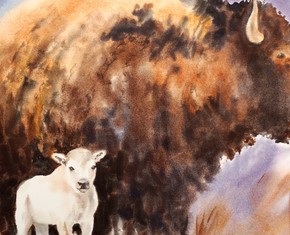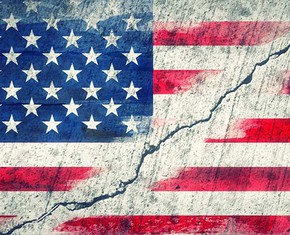The views expressed in our content reflect individual perspectives and do not represent the authoritative views of the Baha'i Faith.
What if we thought of each day as the beginning of a new era?
Naw-Ruz, the Baha’i New Year, took place on March 21st. But any attempt to encapsulate the meaning and multi-dimensional import of Naw-Ruz in a few words falls short of the scope and depth of its significance.
To consider this, we must reflect on the event that immediately preceded it: the Baha’i Fast—nineteen days of fasting and prayer that spiritually and physically prepare us for Naw-Ruz and the year to come.
Shoghi Effendi, the Guardian of the Baha’i Faith, said that Fasting:
…is essentially a period of meditation and prayer, of spiritual recuperation, during which the believer must strive to make the necessary readjustments in his inner life, and to refresh and reinvigorate the spiritual forces latent in his soul. Its significance and purpose are, therefore, fundamentally spiritual in character. – Shoghi Effendi, quoted in The Most Holy Book, pp. 176-177.
Naw-Ruz comes immediately after the Fast and represents the first day of the first month of a new year in the Baha’i calendar. In one of His prayers, Baha’u’llah, the Founder of the Baha’I Faith, asked God:
…to ordain in the course of this year what shall exalt Thy loved ones. Do Thou, moreover, decree within this year what will enable the Daystar of Thy power to shine brightly above the horizon of Thy glory and to illuminate by Thy sovereign might, the whole world. – Baha’u’llah, Prayers and Meditations, p. 146.
Naw-Ruz is a time of happiness, when families gather to share the joy of completing another year together and celebrate the promise of renewal in the year to come. It is, as Baha’u’llah himself said, “…a day on which the breath of life is wafted over all created things.” (Gleanings from the Writings of Baha’u’llah, p. 14.)
The Bab, the precursor and herald of the Baha’i Faith, inaugurated this new calendar composed of nineteen months of nineteen days, and four more days called “The Intercalary Days.” Each month is named after an attribute of God, as is each day of the week, with names such as Glory, Majesty, Splendor, Beauty, Light, Mercy, and Perfection.
The Bab called this first day of the new year “The Day of God,” which refers to the coming of Baha’u’llah, the Manifestation of God for this era. The first month is named Baha—“Glory”—again a reference to Baha’u’llah, which means “The Glory of God.” So every new year begins focused on Baha’u’llah.
After adopting the calendar initiated by the Bab, Baha’u’llah designated Naw-Ruz a holy day. In his Most Holy Book, he spoke about our relationship with this day:
Happy the one who entereth upon the first day of the month of Bahá, the day which God hath consecrated to this Great Name. And blessed be he who evidenceth on this day the bounties that God hath bestowed upon him; he, verily, is of those who show forth thanks to God through actions betokening the Lord’s munificence which hath encompassed all the worlds. – Baha’u’llah, The Most Holy Book, p. 60.
Abdu’l-Baha, the son of Baha’u’llah, spoke about the underlying meaning of renewal on Naw-Ruz when he said, “This is the beginning of the spring.” And he continued, “The mineral world is set in motion, plants begin to sprout, the desert is changed into a prairie, trees bud and every living thing responds, including the bodies of animals and men. The rising of the sun at the equinox is the symbol of life and the human reality is revivified; our thoughts are transformed, and our intelligence is quickened.” (Divine Philosophy, p. 75.)
As one reflects on these quotes and thinks about what Naw-Ruz really means, one cannot avoid coming back to this kernel of renewal, of change. Abdu’l-Baha said, “Soon the whole world, as in springtime, will change its garb. The turning and falling of the autumn leaves is past; the bleakness of the winter time is over. The new year hath appeared and the spiritual springtime is at hand.” (Baha’i World Faith, p. 352.) And it’s hard to imagine this higher order of transformation happening without it being sourced from something greater.
Does it not seem, then, that on Naw-Ruz of all days, we desperately need something different: a new way of living based on the essential oneness of humanity? Should we not as individuals, communities and institutions be desirous of, and committed to, a new path? Do we not want a new vision of our future and the means by which we can realize that future? Aren’t we all responsible to build, together, a vibrant community here and today?
Baha’u’llah said: “The world is in travail, and its agitation waxeth day by day.” (Gleanings from the Writings of Baha’u’llah, p. 118.) We are living this every day. Society is witness to the forces of destruction taking hold as the old way of thinking and doing things crumbles. But as the sun sets, we can be assured of the sunrise to come. As the bleak winter ends, we can anticipate the inevitability of springtime: of a Naw-Ruz. That spiritual regeneration sprouts a new way of thinking and new models for the betterment of humanity, contributing to an ever-advancing civilization.
Yes, Naw-Ruz takes place on one day. But could Naw-Ruz also be a condition, a state of being? Why limit the expression of Naw-Ruz to one day or a few days? Isn’t the desire to live with true faith, true religion, rooted in our hearts and souls, the expression of which has been sought by sages, monks and gurus throughout our history? Could we not only celebrate Naw-Ruz on a single day, but begin every day as Naw-Ruz and live every day as if we were fasting?
Every morning is the beginning of a Naw-Ruz that begs to be filled with a new spirit. Every morning, we can ask ourselves: How can I think differently today to make things better? How can I speak differently to elevate my conversations? How can I behave today to reflect my belief in the fundamental nobility of every human being? How can I have the courage to reflect these qualities and attributes in every aspect of my life?
Baha’u’llah promised a great springtime to come. He said: “Soon will the present-day order be rolled up, and a new one spread out in its stead.” (Gleanings from the Writings of Baha’u’llah, p. 7.) We are destined to achieve great things, through a process of crisis and victory, of disintegration and integration, always advancing.
It is not our purpose to live blindly while we are on this Earth. If we do so, it’s because we made a choice. Every one of us has a role to play in bringing about the unity of mankind—the “new day” that we seek. Without this unity, how can we even imagine establishing everlasting peace?
We have the responsibility to purify our souls, enlighten our thinking, elevate our speech, and improve our behavior, so that we make the contribution that we are destined for: to build a civilization where every sunrise is a Naw-Ruz.
















Comments
Sign in or create an account
Continue with Googleor